May 24, 2025 | 05:06 GMT +7
May 24, 2025 | 05:06 GMT +7
Hotline: 0913.378.918
May 24, 2025 | 05:06 GMT +7
Hotline: 0913.378.918
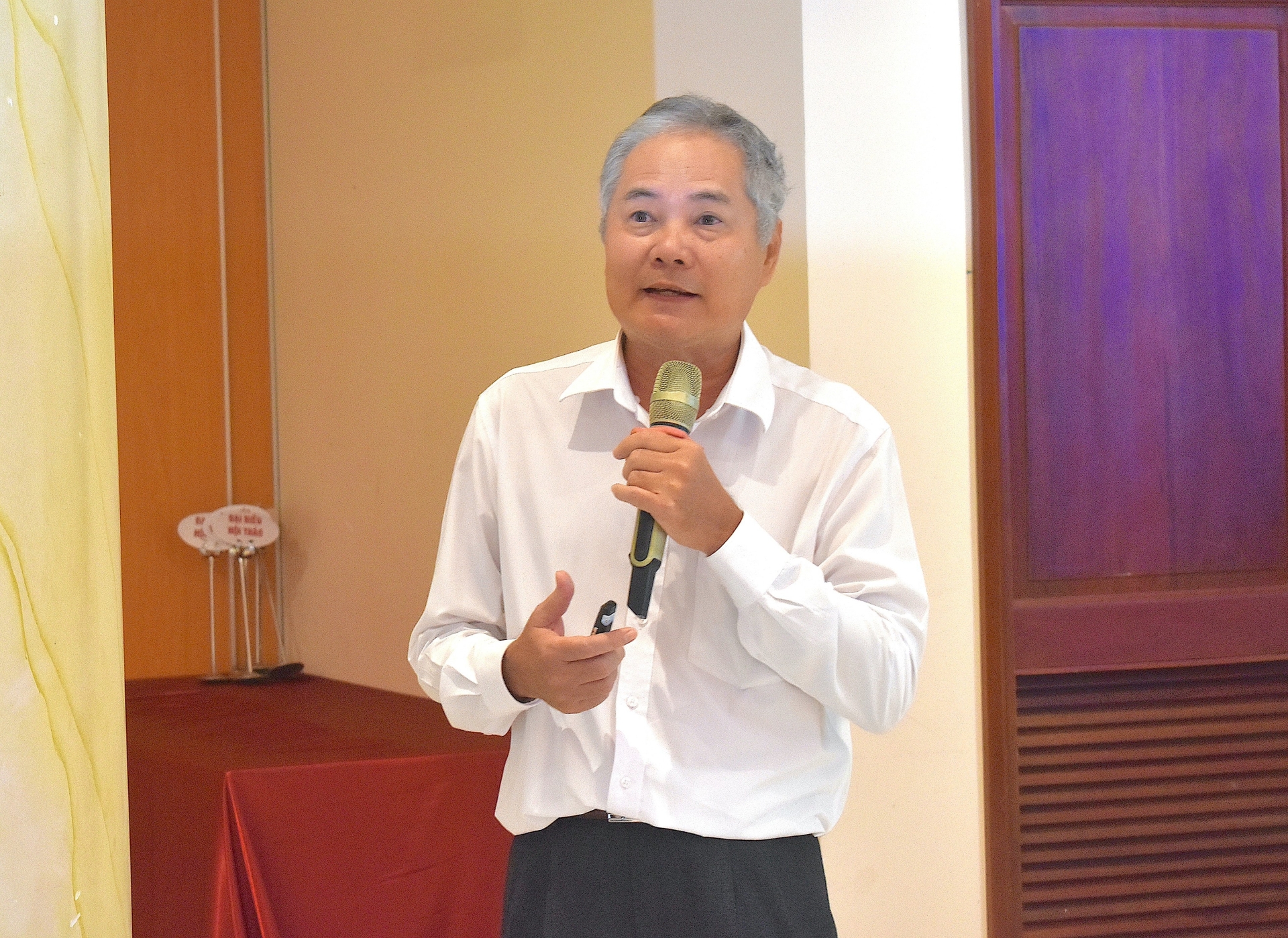
Associate Professor, Dr. Vo Thanh Danh, lecturer at the College of Economics - Can Tho University.
At the workshop on "Elevating the Value of Vietnamese Agricultural Products" held in Vinh Long province, Associate Professor Dr. Vo Thanh Danh, a lecturer at the College of Economics at Can Tho University, shared insights into global agricultural market trends and solutions to enhance the value of key agricultural products in the Mekong Delta region.
The overall context of the agricultural sector in the Mekong Delta, according to Associate Professor Dr. Vo Thanh Danh, compared to other key economic regions in Vietnam, is that most areas within the Delta have advantages based on agricultural resources and a diverse range of agricultural products, including rice, aquaculture, fruit trees, and industrial crops. However, there are still challenges in agricultural production in the Mekong Delta. Most notably, the Mekong Delta is being influenced by the water source of the Mekong River.
Furthermore, agricultural production lacks a degree of high specialization; it remains fragmented and small-scale, without a strong commodity-producing agricultural base. As a result, the region's agriculture is primarily focused on producing from naturally available resources, rather than producing according to market demand or as commodities. Farmers emphasize the yield and productivity factors whereas profit remains a less prioritized concern.
Moreover, the adaptability of agriculture to climate change remains uncertain, and research in this area is inconclusive.
The field of agricultural processing and preservation has developed rapidly in recent years. However, the technology remains outdated and inefficient, which poses as a bottleneck for the Mekong Delta. Processing is the highlight of various industries in the Mekong Delta. Conversely, there has been no significant breakthrough in terms of industry position and competitive advantage compared to the national average.
Local companies primarily focus on exporting raw agricultural products, despite their significant potential. The Mekong Delta severely lacks large agricultural companies or corporations capable of leading sustainable agricultural development.
The logistics system is underdeveloped compared to the requirements. Specialized and state management agencies have extensive investments and infrastructure development for the Mekong Delta. A solid system of infrastructure is a prerequisite for regional market development.
Associate Professor Dr. Vo Thanh Danh emphasized, "One of the principal vulnerabilities in the development of agriculture within the Mekong Delta is the absence of major companies or corporations that establish a headquarter with a primary presence in the region." These businesses possess an in-depth understanding of the market, enabling them to exploit profit opportunities, establish collaborations with farmers, and facilitate product sales. The absence of significant business entities in the area relegates the Mekong Delta to a satellite or secondary market status rather than a primary one.
"It is only when we witness the establishment of large companies headquartered in this region that we will observe a marked and robust transformation in our agriculture", the expert conveyed his scientific research perspective.
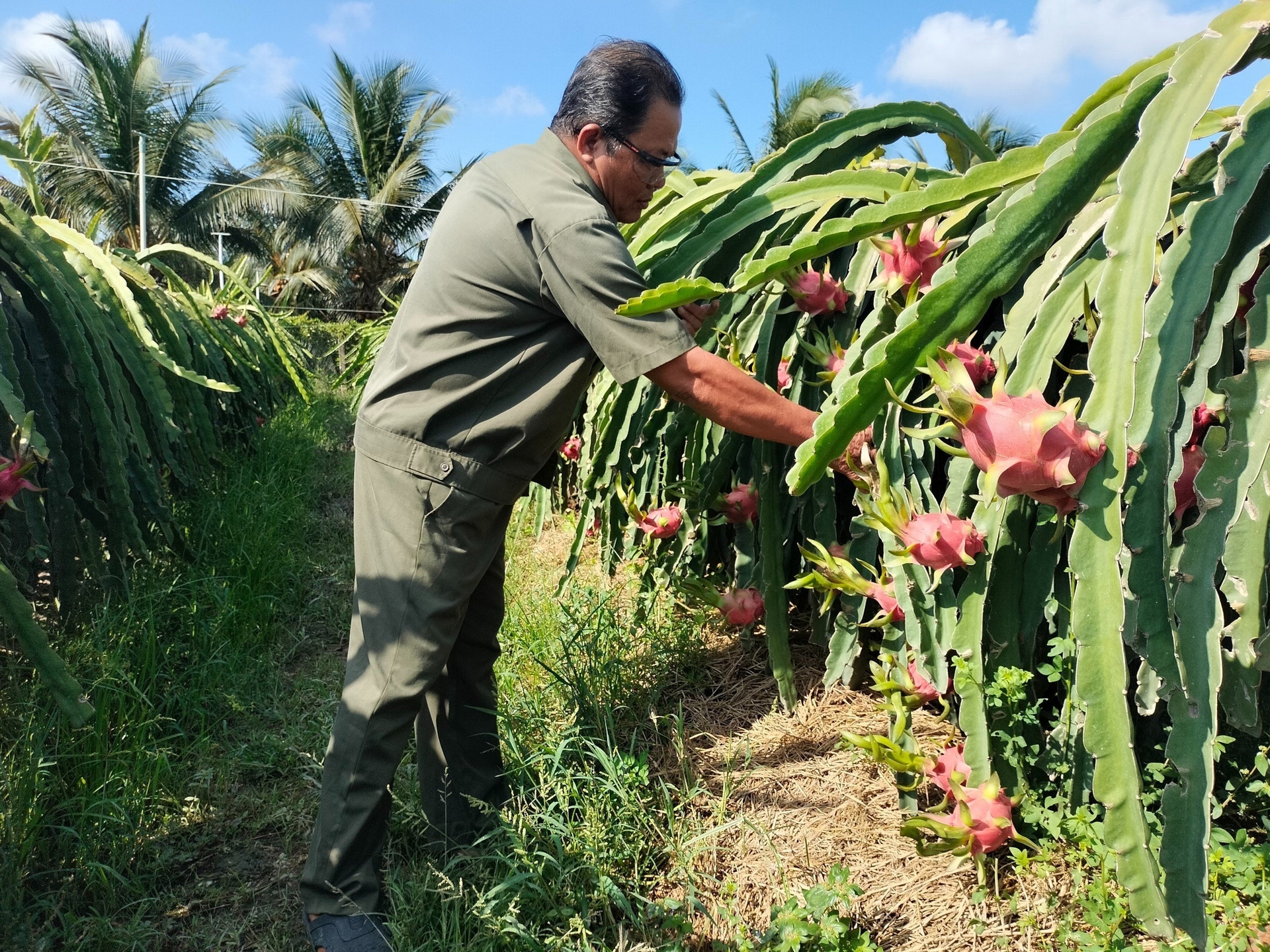
The agricultural supply chain in the Mekong Delta is loosely connected and vulnerable to disruptions, it requires concentrated efforts to strengthen its resilience.
Economic research studies have demonstrated that the vertical and horizontal linkages in the agricultural sector in the Mekong Delta remain relatively weak. The effects of agglomeration and economies of scale have not yet been clearly observed in this region.
Regarding supply and demand dynamics, the agricultural market in the Mekong Delta, which is similar to rest of Vietnam, is supply-oriented. This trend is expected to persist in the near future, with the domestic market approaching saturation. Recent fluctuations in prices of products such as dragon fruit, durian, and rice have highlighted this issue.
Intermediate market actors remain abundant and influential in controlling the agricultural marketing system, indicating that the distribution channels are underdeveloped. For instance, over 90% of rice exports by major businesses are primarily supplied by intermediaries. Certain businesses even nurture and sustain this intermediary system.
Additionally, Assoc. Prof. Dr. Vo Thanh Danh stressed that the risks and uncertainties in the international agricultural market have direct consequences on the domestic market, affecting individual producers. He cited political issues such as the grain agreements between Russia and Ukraine and the visit of the President of the United States Joe Biden to Vietnam as examples.
He also noted that the global supply chain is undergoing significant shifts due to rising nationalism, populism, and international and regional crises. Furthermore, the rapid advancement of the Fourth Industrial Revolution has increased economic efficiency, leading to reduced prices in the export market. Assoc. Prof. Dr. Danh argued that this shift benefits countries with strong technological capabilities.
Furthermore, many agricultural products are currently heavily reliant on a few major buyers. This buyer-centric nature of the agricultural market places downward pressure on the price of agricultural products. He emphasized the necessity of accepting this competitive landscape; otherwise, exclusion is a likely possibility. Numerous agricultural products are entangled in this competition. For instance, Vietnam's seafood sector has struggled to remove "yellow card" warnings due to non-compliance with international regulations. These challenges are expected to persist if product standardization is not achieved.
Moreover, Assoc. Prof. Dr. Vo Thanh Danh pointed out that the agricultural market is inherently characterized by surplus supply. The supply in in agricultural production often overwhelms demand. As a result, temporary shortages are quickly followed by surpluses. This surplus supply exerts downward pressure on prices and places significant challenges on the farmers. Consequently, prices are on a consistent downward trend with short-lived surges.
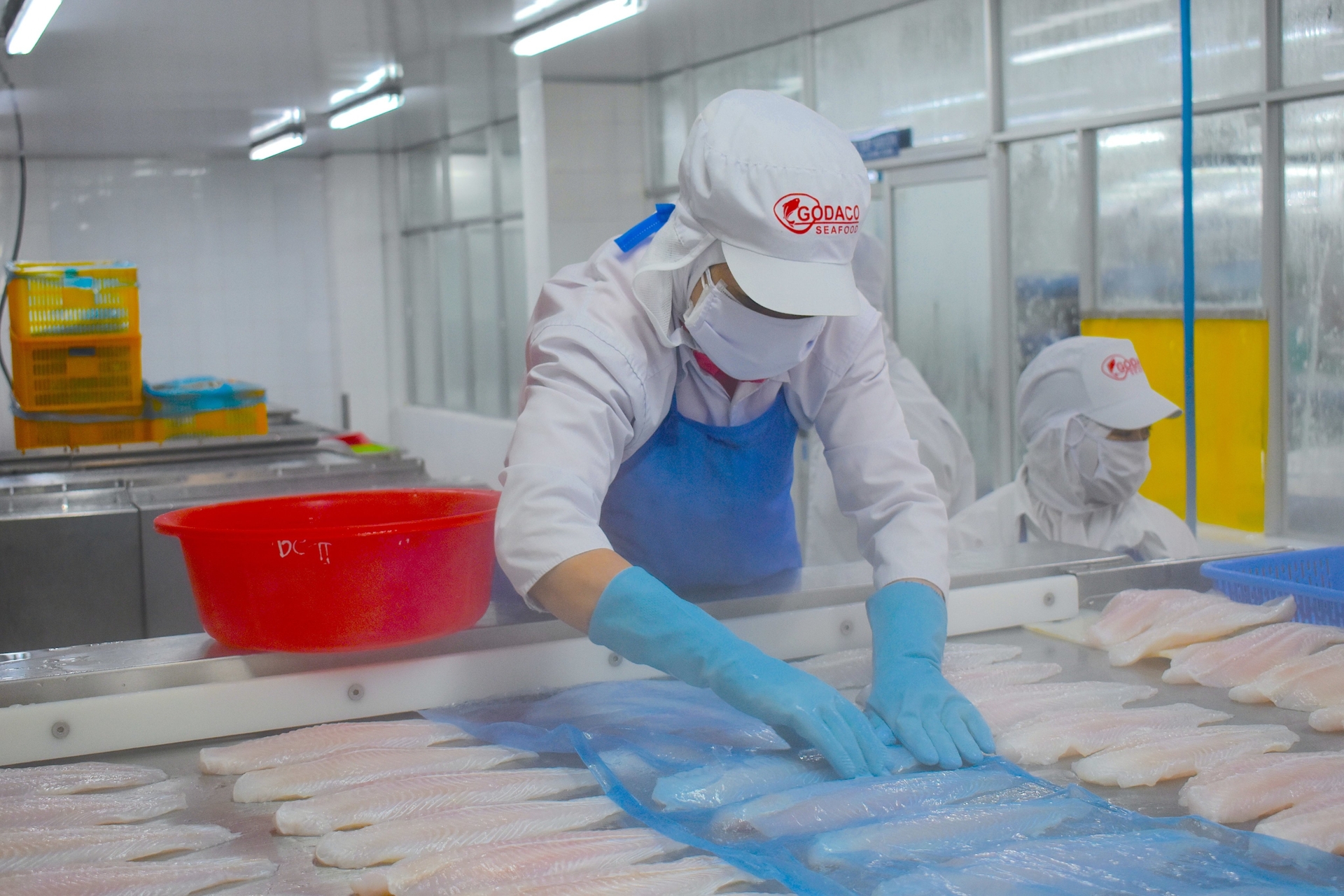
The agricultural market is an issue of surplus supply.
Based on the aforementioned analyses, Assoc. Prof. Dr. Vo Thanh Danh has proposed strategies and solutions for the agriculture sector in the Mekong Delta.
In terms of strategy, he suggests a national and regional strategy for the development of climate-resilient agriculture. Secondly, the region must transition to an agricultural economic model that focuses on producing commodities and conduct agricultural trading with the market as the primary target. Addtionally, producers must standardize their products and adhere to global market rules in order to sell and export agricultural products in the long term.
Thirdly, the region needs to establish strong science and technology businesses and corporations. Fourthly, a modern seed industry must be established. Furthermore, the region must encourage production models within supply chains that establish companies as the nuclei and farmers as the satellites.
"Loc Troi Group is an example of a production model within supply chains that establish companies as the nuclei and farmers as the satellites. In terms of strategy, they send representatives to participate in the cooperative management council, produce according to their standards, and oversee the process. Only companies with such significant capabilities can achieve success", emphasized Assoc. Prof. Dr. Vo Thanh Danh.
Regarding solutions, the expert believes the primary focus should be on the supply aspect. This includes standardization, product diversification, the strong development of agricultural processing industries, seed development and transfer, market promotion for potential agricultural products, strengthening of horizontal linkages, and development of cooperative systems and linkages between companies.
The agricultural market in the Mekong Delta should emphasize on supply-cetric solutions in the near future, as demand may expand beyond the reach of current business systems.
"In the end, producers must always remember that the agricultural market is an issue of surplus supply. We may be fortunate enough to have crops with both good yields and high prices, but this is only temporary. The state of the market has remained unchanged for hundreds of years. As a result, the pressure is always on surplus supply. Collaboration with large companies is the only solution," Assoc. Prof. Dr. Vo Thanh Danh concluded.
Translated by Nguyen Hai Long
/2025/05/22/5250-1-184853_288.jpg)
(VAN) According to a representative from the Central Retail Vietnam, Vietnamese products such as seafood, sweet potatoes, dragon fruit, coffee, and spices hold great potential in the Thai market.
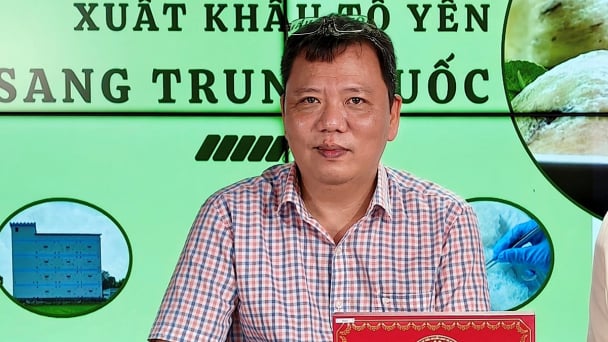
(VAN) A multi-channel, multi-directional strategy only works when the agricultural value chain meets global transparency and SPS standards.
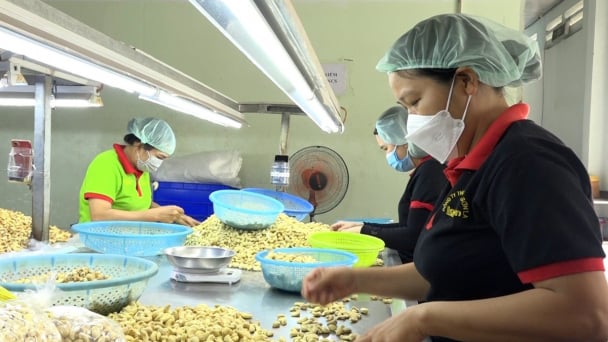
(VAN) Market expansion is a matter of survival for Vietnamese businesses amid fierce competition and global supply chain fluctuations.
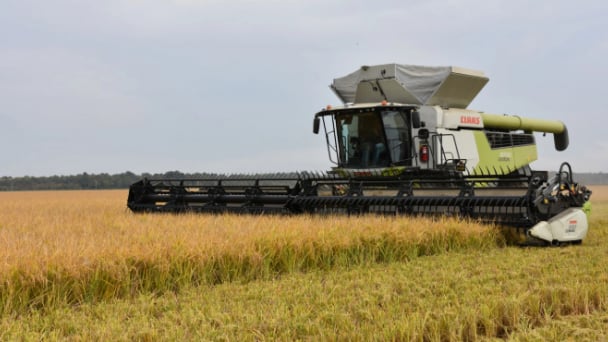
(VAN) Global market prospects for U.S. long-grain rice for the upcoming marketing year.
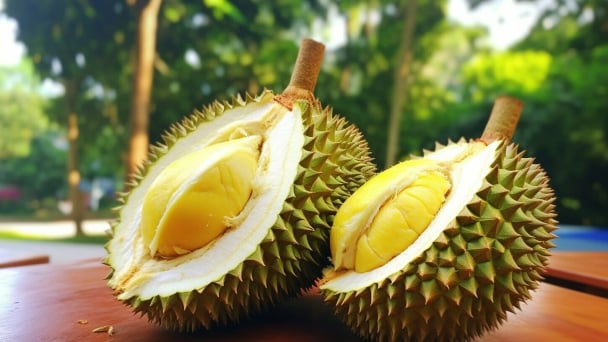
(VAN) China’s General Administration of Customs started permitting fresh durian shipments from Cambodia after a phytosanitary protocol was signed with the Cambodian Ministry of Agriculture in late April.
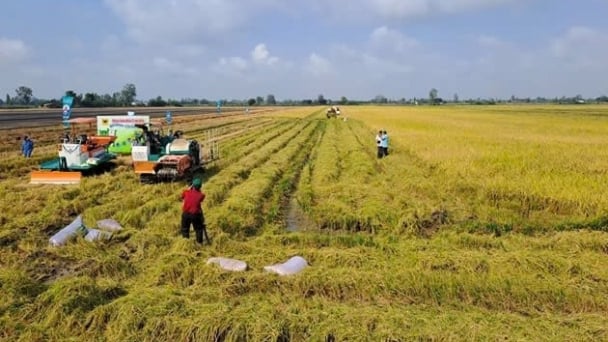
(VAN) To operate carbon market, one of the key issues is determining which types of 'commodities' meet the standards to be traded on the market.
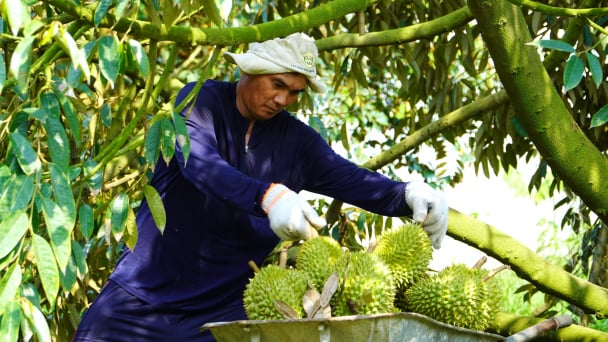
(VAN) Durian-producing localities need to coordinate more effectively with central authorities to improve the traceability, monitoring, and response systems in case of violations.